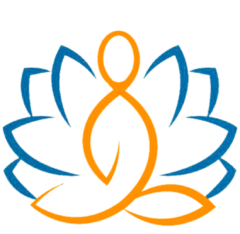Find a quality teacher
An experienced yoga instructor can provide a great deal of insight and guidance as you practice. A qualified yoga teacher can answer your questions during your class, as well as help you achieve the proper posture for each pose with individualized cues and hands-on adjustments. A great teacher should be knowledgeable yet kind, friendly, and compassionate.
Learn some poses ahead of time
Many of the asanas or poses can feel complicated, especially at first. Luckily, you can spend some time before your first class getting accustomed to the poses that you can expect to perform, such as Mountain pose, Child, Warrior 1, Sun Salutations, and so on. By learning a few of these beginner poses, you’ll feel more confident and ready to take part in your class.
Wear comfortable clothing
The right clothes can make a world of difference in class. Ideally, you’ll want to select a supportive top and yoga pants made from breathable materials with moisture-wicking features. For cooler weather, you may want to invest in thermal athletic gear you can easily layer to stay warm.
Modify for your body and needs
Particularly at the beginning, it will be difficult to accomplish every pose covered in your class. If you find that you’re having trouble, your instructor can help you find ways to make it easier on your body. Don’t be afraid to use blocks, straps, or blankets to make the practice easier for your body.
Begin where you are
Yoga is a transformative journey meant to lead you towards some type of goal, whether that goal is less stress, better health, or inner peace. Knowing where you are can help you know where to begin and take your first steps towards your goal. Consider reaching out to a local studio for recommendations and guidance for your level of experience and fitness.
Avoid making comparisons – Go slow
Because yoga is your own journey, there is no point in checking out someone else’s progress for the sake of comparing and judging yourself to them. You can draw motivation, appreciation, and inspiration from their bodies’ capabilities; however, don’t beat yourself up if you aren’t at that point yet. Regular practice will help you get there.
Don’t rush yourself through each pose or the class. Yoga is purposeful, mindful, and fluid. By moving slowly, you can continue to make sustainable progress as you practice. Also, it can help prevent injury, boost your mindfulness, and improve your overall concentration.
Stay hydrated
Hydration is crucial, regardless of the form of exercise you’ve chosen. While it isn’t recommended to drink during yoga, there are some ways that you can stay hydrated throughout your practice. About an hour before class, for instance, start sipping a 16-ounce bottle of water. Drink another 20 ounces after you’ve finished your yoga class to replace fluids.
Set an intention
Setting intentions for your yoga classes can help you feel motivated to work towards your goals. An intention is a purpose for your practice, which can change for each session if you prefer. Your intention is a tool to focus your mind away from thoughts and distractions, towards feelings of peace, kindness, acceptance, or whatever else you feel is needed in your life.
Breathe
The flow of your breath is essential in yoga classes. By breathing slowly and deeply throughout your regular routine, you increase circulation and reduce stress while stimulating your mind and body. Yogic breathing helps reduce the risk of injury, allowing your body to relax as it moves through different poses.
Eat mindfully
Be mindful of your eating habits, particularly if you prefer to eat before your yoga class. If you’re hungry, a light snack can help you fuel up for your class. Many people prefer to snack on small portions of almonds, fiber-packed fruits, or sports bars. Avoid greasy or garlicky foods before your class. Try not to eat anything 2-3 hours before class otherwise you’ll feel some discomfort in poses that put pressure on your belly.
Respect your body’s limits
Discovering and knowing your physical and mental limits is vital to succeeding in yoga. Listen to your body as you stretch, move, and breathe. If you have trouble breathing or experience pain, adjust the pose until you can do it without struggling. Also, keep in mind that some poses shouldn’t be attempted for those with certain conditions, such as injury, pregnancy, and chronic illness.
Maintain a regular yoga practice
Frequent short practices will be more effective than fewer longer ones. Just a few poses for 15-30 minutes a day can have a very beneficial impact on your physical, emotional, and mental well-being. You can achieve much more benefits from a daily discipline, and you will also boost your learning and mastery of the practice.

Well done guy !!!!!!!!